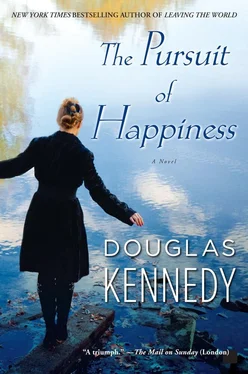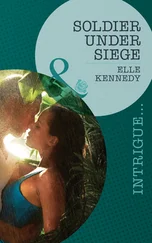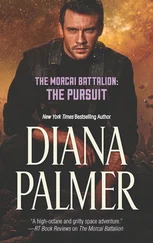'Christ, will you listen to the tough little broad'.
'I have to be tough', I said. 'Because tough's the only way you hold your own... as a broad'.
This exchange took place in the bar of the New Yorker Hotel on 34th and Seventh. After finally extricating myself, I caught the subway home and spent the evening listening, yet again, to that amazing Ezio Pinza performance of Don Giovanni. Of all the records in my ever-growing collection, it was the one to which I kept returning. Tonight, however, I figured out why. In the opera, Donna Elvira is swearing revenge against Giovanni - because he's robbed her of her virtue. In truth, however, Elvira's anguish is rooted in the fact that she fell head over heels for the Don who had seduced and abandoned her. Meanwhile Donna Anna is doing her damnedest to avoid the dull, cautious Don Ottavio who so desperately wants her as his wife.
For some curious reason, this story rang a bell with me.
I had surrendered to Don Giovanni. I had surrendered to Don Ottavio. But why surrender again to anyone when you're finding your own way in the world?
On New Year's Eve, 1949, Eric threw a bash at his Hampshire House apartment. There must have been forty people there, not to mention a five-piece band, featuring Ronnie (naturally) on sax. My contract with Saturday/Sunday had just been renewed for another two years. Thanks to Joel Eberts, my per column price had risen to a hundred and fifty dollars. The magazine had also just appointed me as their movie critic, at an additional hundred and fifty dollars per week. And I was still writing the monthly 'Music for Middlebrows' column. All told, I would be making sixteen grand in 1950 - crazy money for such easy, fun work. Meanwhile, Eric had also just finished an extended contractual renegotiation with NBC. Besides retaining his position as Marty Manning's chief writer, the network also wanted him to develop new ideas for other shows. To keep him sweet (and out of the prying hands of CBS), they upped his salary to four hundred dollars a week, and also handed him an annual twelve-thousand-dollar consultancy fee, along with his own office and a secretary.
And so, here we were, crammed in Eric's living room overlooking Central Park, shouting 'five-four-three-two-one' as the dying moments of the nineteen-forties vanished, and we all screamed 'Happy New Year' and embraced a new decade.
After being kissed by two dozen strangers, I managed to find my brother - standing near one of the windows. A fireworks display within the park was illuminating the midnight sky. Eric - giddy on too much champagne - grabbed me in a bear hug.
'Can you believe it?' he asked me.
'Believe what?'
'You. Me. This. Everything'.
'No. I can't believe it. Nor can I believe our luck'.
Outside, there was a rat-a-tat explosion, followed by a supernova flash of streaking red, white and blue light.
'This is it, S', Eric said. 'This moment is definitely it. So savor it. Because it might not last. It might vanish overnight. But now - right now - we're winning. We've won the fucking argument. For the time being, anyway'.
The party broke up at dawn. I greeted the first sunrise of 1950 with bleary eyes. I was in desperate need of my bed. The doorman at the Hampshire House found me a cab. Back at my apartment, I fell asleep within seconds of climbing between the sheets. When I woke again, it was two in the afternoon. It was snowing outside. By night, that snowfall had upgraded itself into a major blizzard. It didn't stop until the morning of January third. The city was paralyzed by all the stacked-up snow. Venturing outside was virtually impossible for two more days. So I lived off assorted canned goods in my pantry, and managed to write a month's worth of 'Real Life' columns to make some reasonable use of this forced period of incarceration.
On the morning of January fifth, the radio reported that the city was getting back to normal. It was a bright, cold day. The streets had been cleared of snow; the sidewalks shoveled and salted. I stepped outside, and took a deep pleasing breath of bad Manhattan air. I knew I needed to do some serious grocery shopping (all my cupboards were now bare). But before I replenished my stocks, what I really craved - after five days indoors - was a long brisk walk. Riverside Park was my usual exercise yard - but this morning, I suddenly decided to head east.
So I turned right down 77th Street. I passed a series of local landmarks: the Collegiate School for Boys, Gitlitz's Delicatessen, the Belleclaire Hotel. I crossed Broadway. I walked by the shabby brownstones huddled together between Amsterdam and Columbus Avenues. I stared up at the gargantuan gothic splendour of the Museum of Natural History. I crossed Central Park West. I entered the park.
The footpaths in Central Park had yet to be cleared, so I had to negotiate the snowbound road. Within moments of walking downhill, I was no longer in New York City - rather, in some wintry corner of backwoods New England: a white, frozen landscape, in which all sound had been absorbed by the sheer density of snow.
I made my way further down the hill, then crossed over to the path that ran by the lake. There was a narrow little laneway which led down to a gazebo. I took it. When I got there, I sat down on a bench. The lake was frozen. Above it loomed the midtown skyline: proud, lofty, impervious. Of all the vistas in Manhattan, this was my favorite - the pastoral stillness of the park overshadowed by the brash mercantile splendor of this mad island. No wonder I had headed here after five days indoors. A new decade had arrived - with all its edgy promise. This was my first proper chance to acknowledge it. Where better to do it but here?
After a few minutes, I heard murmurs in the distance. A woman my age entered the gazebo. She had a lean, patrician face - an attractive severity that made me instantly categorize her as a fellow New Englander. She was pushing a stroller. I smiled at her and looked inside. Wrapped up tightly against the cold was a little boy. I felt the usual stab of sadness that now hit me every time I saw a child. As always, I masked it with a tight smile and a platitude.
'He's beautiful', I said.
'Thank you', the woman said, smiling back at me. 'I agree'.
'What's his name?'
The question was answered by another voice. The voice of a man. It was a voice I had heard before.
'His name's Charlie', the voice said.
The man - who had been two or three steps behind the woman and child - now joined us in the gazebo. Immediately, he put a proprietorial hand on the woman with the stroller. Then he turned towards me. And suddenly went white.
I felt a gasp well up in my throat. I managed to control it. Somehow - after a few seconds of shocked silence - I compelled myself to say, 'Hello'.
It also took Jack Malone a moment or two to regain his voice. Finally he forced himself to smile.
'Hello, Sara', he said.
Two
'HELLO, SARA'.
I stared at him without speaking. How long had it been? Thanksgiving Eve, 1945. Four years - give or take a month or two. Good God, four years. And somehow, some way, he'd haunted me all that time. Not a day went by when I didn't think of him. Always wondering where he was. If I would ever see him again. Or if that three-word postcard - I'm sorry... Jack - was his final statement on the matter.
Four years. Could it have evaporated so quickly? Blink once, you're a neophyte New Yorker, just out of college. Blink twice, you're a divorced woman of twenty-eight - suddenly face to face again with a man with whom you spent a night nearly fifty months ago... yet whose presence has loomed over everything since then.
I studied his face. Four years on, he still looked so damn Irish. His skin had remained ruddy, his jaw square. This altar boy was yet unlined. He was wearing a dark brown overcoat and thick leather gloves, and a flat cap. At first sight, Jack Malone was an exact facsimile of the man I'd met in 1945.
Читать дальше












